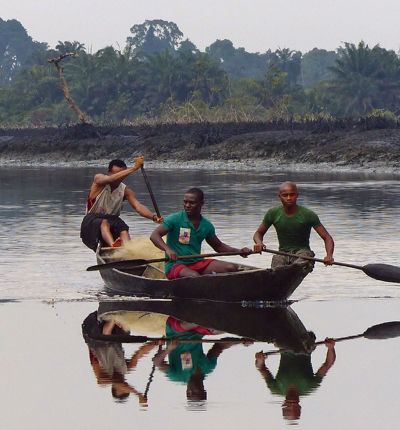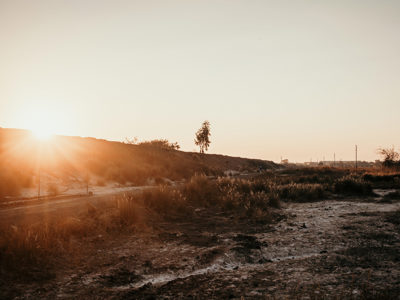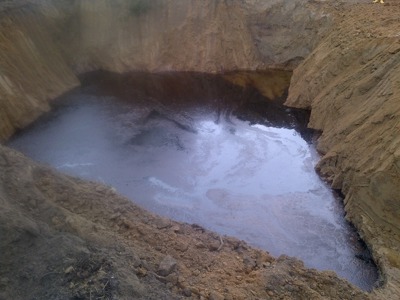
High Court rejects Shell's attempts to block Nigerian community’s legal claim over major oil spill clean-up
The High Court has today rejected an attempt by Shell to strike out a legal claim over its clean-up operation after two massive oil spills that severely polluted the Bodo community’s land in southern Nigeria in 2008.
Posted on 12 February 2024
The spills of almost half a million barrels of oil by Shell’s Nigerian subsidiary SPDC caused the largest loss of mangrove habitat in history of oil pollution. 15 years later, the clean-up is still not complete.
Over the last nine years the Bodo Community has repeatedly been forced to return to court to get Shell to clean up its oil. This has resulted in an unprecedented clean-up operation, the largest ever replanting of mangroves impacted by oil and the largest active oil spill clean-up in the world.
In 2014 the case was settled for £55 million. In 2016 the court ruled that Shell could not prevent the Bodo community bringing a claim to enforce the clean-up, but a mediation scheme should be given time to make progress.
At a hearing in May 2023 the Bodo community claimed Shell’s clean-up operation in the wake of the oil spills was not adequate. Shell tried to have the claim struck out and asked the court to reject the community’s attempts to secure the use of independent scientific expertise to scrutinise its clean-up.
Shell claims to have almost completed the clean-up operation. However, at the hearing, lawyers from Leigh Day representing the Bodo community produced preliminary scientific evidence that Shell's clean-up methodology does not meet accepted international standards and will leave dangerous levels of contamination in the Bodo creek.
Mrs Justice O'Farrell’s judgment rejects Shell's attempts to strike out the Bodo community’s legal claim for confirmation by independent experts that the clean-up has been conducted to international standards. The judge ruled that the Bodo community is entitled to have the evidence heard at a substantive trial. The judgment also sets directions for the parties to exchange evidence and prepare for a trial on the adequacy of Shell's clean-up on 17 February 2025.
The Bodo Community's case raises broader issues in the context of Shell plc’s recent announcement of its proposed sale of its Nigerian subsidiary, SPDC.
Leigh Day is also pursuing claims against Shell in Nigeria for the Ogale and Bille Communities. In these claims, Shell also claims to have cleaned-up oil spills in Ogale and Bille but has resisted the communities’ attempts to obtain internal company documents about contamination levels in those communities.
Leigh Day solicitor Steve Bilko said:
"The community’s evidence shows that Shell's clean-up methods have left levels of pollution in Bodo which represent a serious risk to public health. This will raise alarm bells in the many communities in Nigeria affected by Shell's pollution, most of which are not the subject of extensive clean-up operations like Bodo’s. Campaigners claim Shell should not be able to sell its onshore operations in Nigeria without properly assessing and cleaning the environmental harm caused by its oil and compensating the affected communities.”

Stephen Bilko
Stephen Bilko is an senior associate solicitor in the international department.

Kabwe lead poisoning Claimants remain committed to securing justice as they seek leave to appeal in case against Anglo American South Africa
Claimants have filed an application for leave to appeal a December judgment that dismissed the certification of a class action on behalf of an estimated 140,000 Claimants, effectively blocking their access to justice.

High Court rules Nigerian communities can bring landmark human rights claims against Shell for oil pollution
The High Court has ruled that 13,000 Nigerian fishermen and farmers at the centre of a major oil pollution case against Shell can bring claims for breaches of their right to a clean environment under Nigerian constitutional law. If the case succeeds at trial, it will be the first time in legal history that a UK multinational will have been found to have breached a communities’ right to a clean environment.

